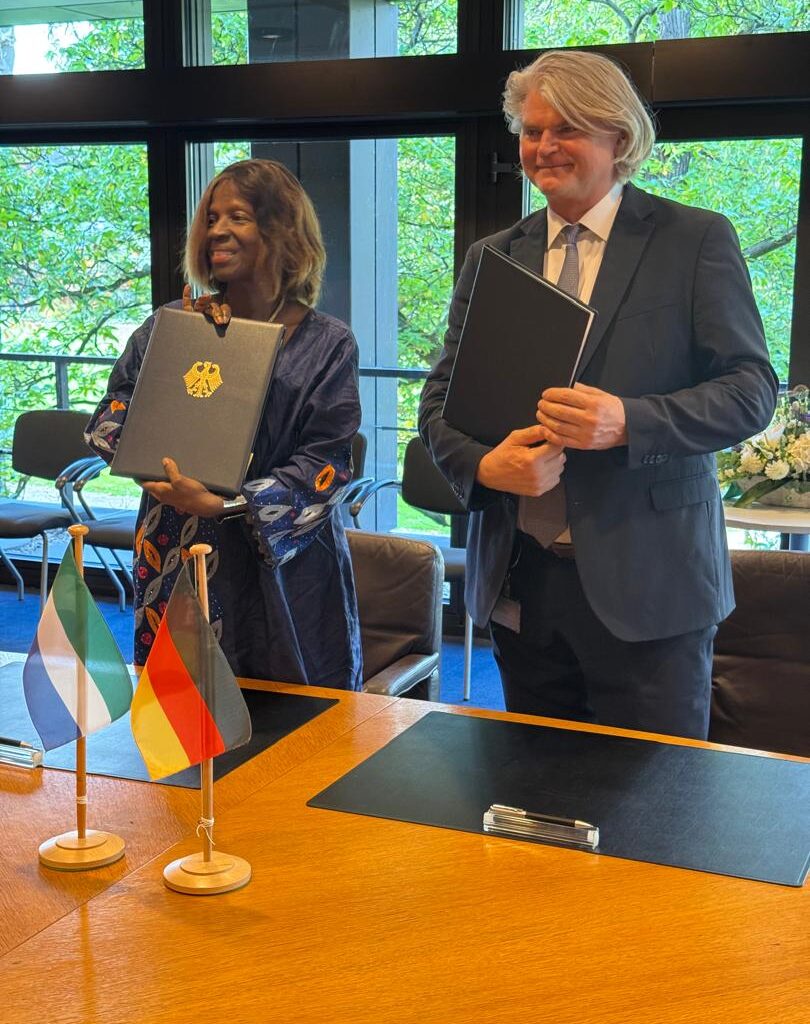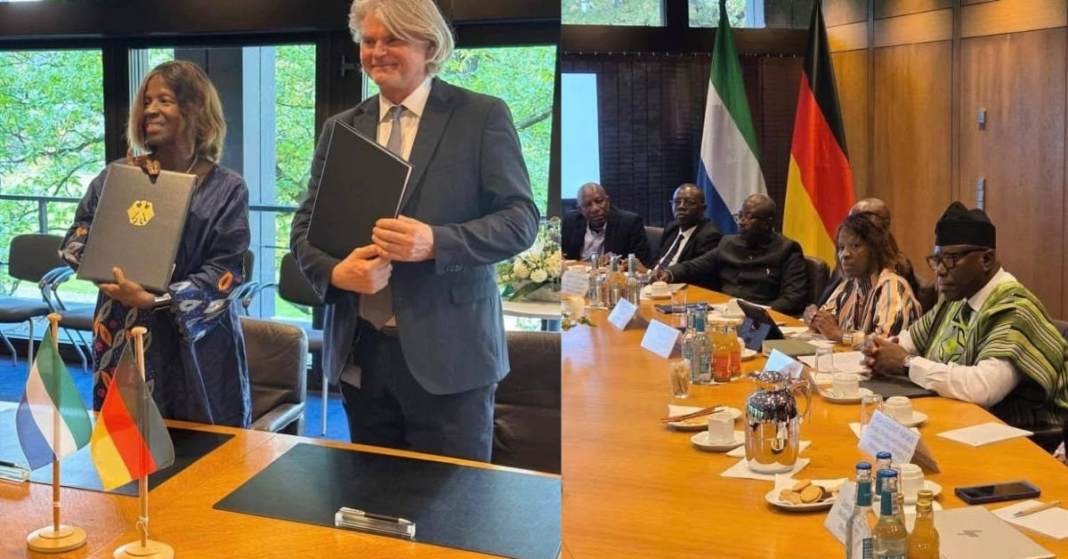The Government of Sierra Leone has secured a €28.2 million grant from the Federal Republic of Germany following successful negotiations led by the Ministry of Planning and Economic Development (MoPED), the Ministry of Health (MoH), and the Presidential Initiative on Climate Change, Renewable Energy, and Food Security (PI-CREF).

The high-level Sierra Leonean delegation was headed by Minister Kenye Barlay of MoPED and Dr. Patrick Kormawa, Director of Food Security at PI-CREF. The funding package will target three priority areas healthcare delivery, renewable energy development, and climate resilience — in line with the government’s Medium-Term National Development Plan (MTNDP).
Speaking at the conclusion of the negotiations, Minister Barlay described the agreement as “a major boost to Sierra Leone’s long-term development vision and its partnership with Germany.” She emphasized that the funds will enhance national capacity in public health, strengthen renewable energy access in rural communities, and accelerate the country’s transition toward sustainable development.
Dr. Kandeh Kolleh Yumkella, Chairman of PI-CREF, participated virtually in the discussions and was instrumental in coordinating the engagement that led to the final signing. He noted that the agreement reflects Germany’s confidence in Sierra Leone’s institutional reforms and the country’s growing reputation for responsible management of international partnerships.
“This milestone demonstrates that Sierra Leone’s development agenda is attracting serious global support,” Dr. Yumkella said. “It’s not just about financial assistance—it’s about building resilient systems that improve lives.”
The €28.2 million package will be directed toward key interventions such as improving maternal and child healthcare services, expanding renewable energy infrastructure, and supporting community-based adaptation to climate change.
Observers say the deal represents a strengthening of the long-standing partnership between Sierra Leone and Germany, dating back to post-war reconstruction efforts. In recent years, Germany has supported multiple programs in Sierra Leone, including renewable energy investments, vocational training, and health system strengthening.
This latest funding commitment aligns with the Presidential Initiative on Climate Change, Renewable Energy, and Food Security (PI-CREF), which aims to transform Sierra Leone’s energy and food sectors through innovation and sustainability.
The successful conclusion of these negotiations is being celebrated by both governments as a reflection of Sierra Leone’s growing credibility on the international stage and its readiness to deliver on development promises.
By Frank Turay




